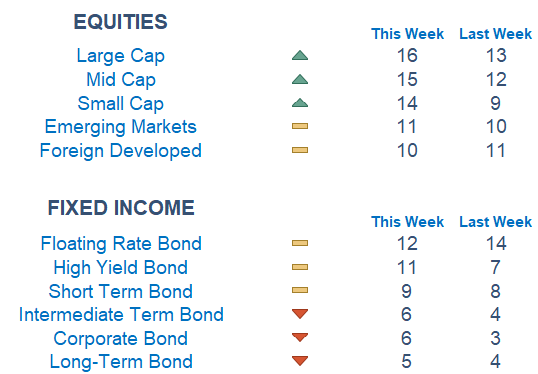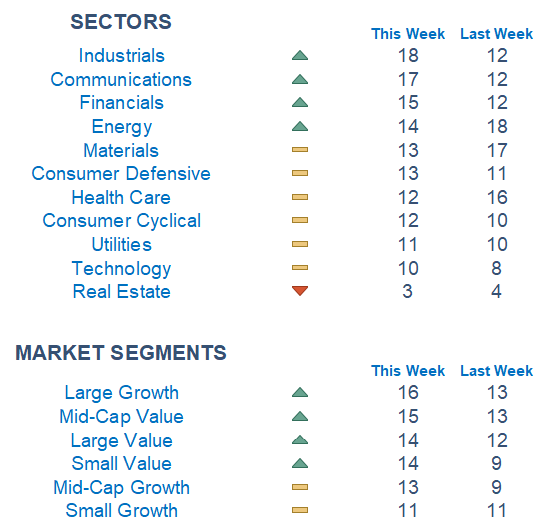Wall Street experienced cautious trading to kick off the shortened trading week. The Federal Reserve's preferred inflation report, the PCE index, is at the forefront of investors' minds, due on Friday when markets are closed.

This Week on Wall Street - Week of March 25th
Market Commentary
Wall Street experienced cautious trading to kick off the shortened trading week. The Federal Reserve's preferred inflation report, the PCE index, is at the forefront of investors' minds, due on Friday when markets are closed. The slight caution comes after a notable rally that marked the S&P 500's best week of the year. Analyst warnings from Morgan Stanley and JP Morgan about overvalued stocks in the absence of profit acceleration also could be weighing on sentiment.
Large Cap Growth is still leading the charge and pulling indexes higher. Bonds are seeing a slight change in direction, but still remain weak. Industrials, Communications, Financials, and Energy are the strongest sectors. Real Estate is a clear laggard.
Stories to Start the Week
Aviation startup Boom Supersonic took a major step today toward its goal of returning commercial supersonic aviation to the skies.
The shocking details behind an F1 team's painful revolution.
Major League Baseball announced that it has opened an investigation following gambling allegations involving Dodgers star Shohei Ohtani's interpreter.
The Mega Millions jackpot climbs to an estimated $1.1B after no grand prize winner Friday.
Economic Releases This Week
Monday: Atlanta Fed President Bostic Speaks, Chicago Fed President Goolsbee Speaks, New Home Sales, Fed Gov Cook Speaks
Tuesday: Durable Goods Sales, S&P Case Shiller Home Price Index, Consumer Confidence
Wednesday: Fed Gov. Waller Speaks
Thursday: Initial Jobless Claims, GDP (2nd Revision), Pending Home Sales, Consumer Sentiment (final)
Friday: Markets Closed, PCE Index, Fed Chair Powell Speaks

What is Newton?
Our Newton model attempts to determine the highest probability of future price direction by using advanced algorithmic and high-order mathematical techniques on the current market environment to identify trends in underlying security prices. The Newton model scores securities over multiple time periods on a scale of 0-20 with 0 being the worst and 20 being the best possible score. Trend & level both matter.


Technical trading models are mathematically driven based upon historical data and trends of domestic and foreign market trading activity, including various industry and sector trading statistics within such markets. Technical trading models, through mathematical algorithms, attempt to identify when markets are likely to increase or decrease and identify appropriate entry and exit points. The primary risk of technical trading models is that historical trends and past performance cannot predict future trends and there is no assurance that the mathematical algorithms employed are designed properly, updated with new data, and can accurately predict future market, industry and sector performance.
